
Menu

Ghee is clarified butter that cooks a bit longer until the milk solids are caramelized and more moisture evaporates which not only gives it an incredible nutty flavour but also its shelf life.
Nutrients:
Ghee: It is an unprocessed fat that contains omega3 fatty acids along with Vitamin A.
Butter: It contains Vitamin A.
Calories:
Ghee: It provides 900 Kcal per 100 grams of serving with 60% saturated fats and no trans fats at all.
Butter: It provides 717 Kcal per 100 grams with 51% saturated fats and 3 grams of trans fats.
When buying ghee from the store it is advisable to read the label properly. Many times, we end up buying vegetable ghee as it sounds healthy and more nature friendly. However, it is not traditional ghee and may contain trans-fats which can cause health problems.
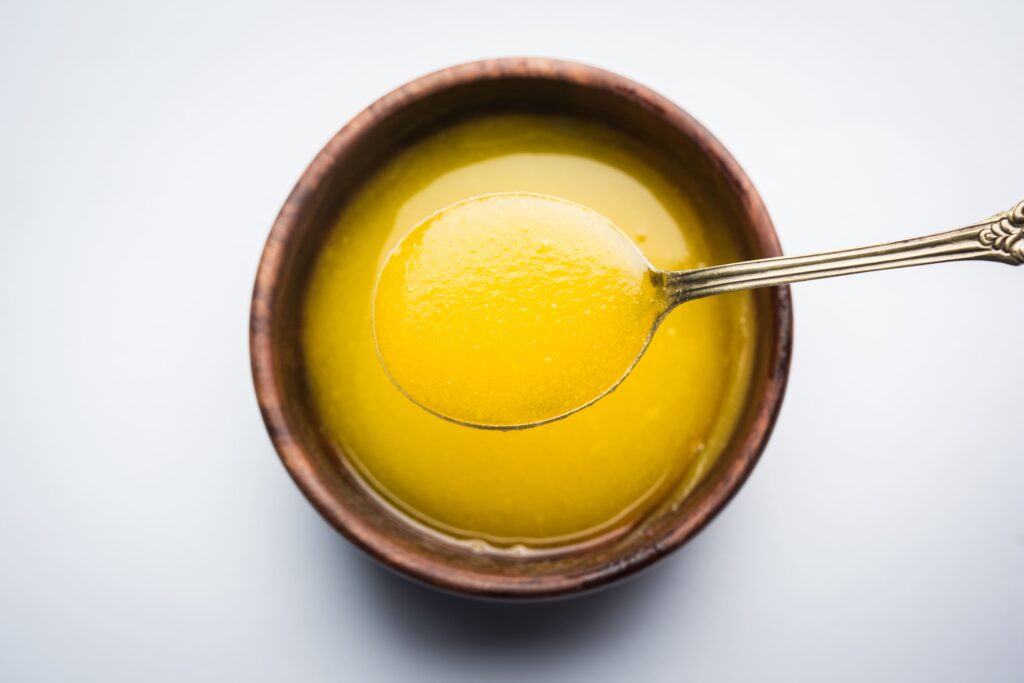

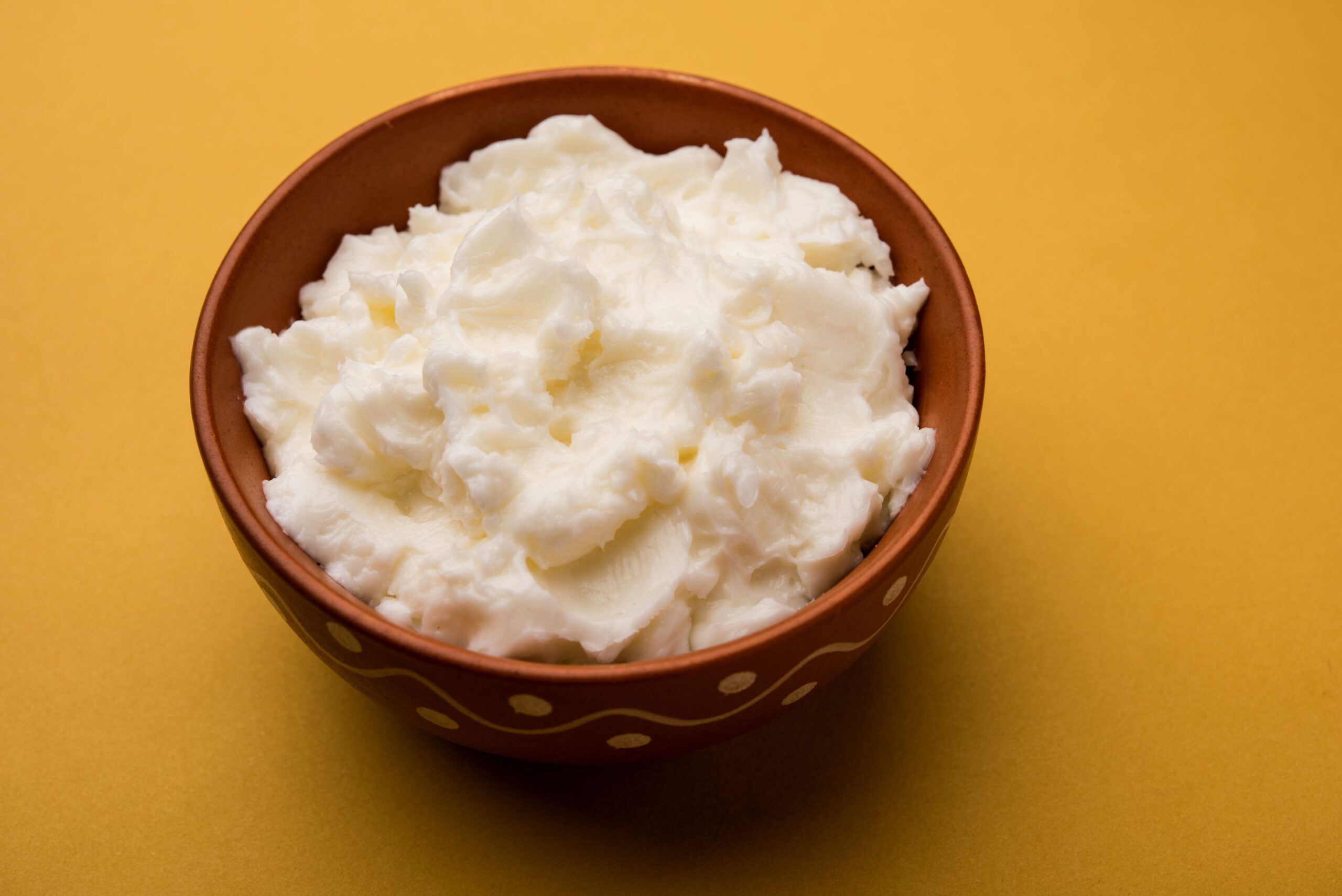
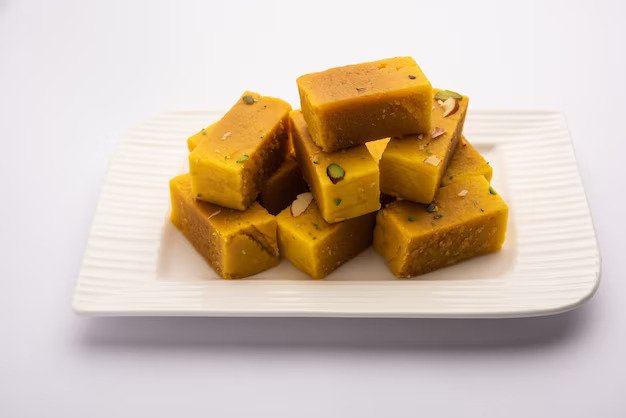
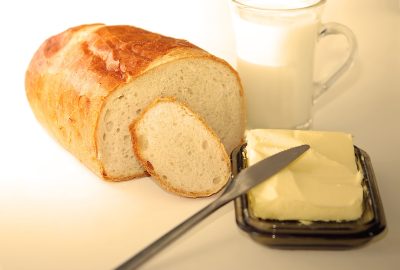
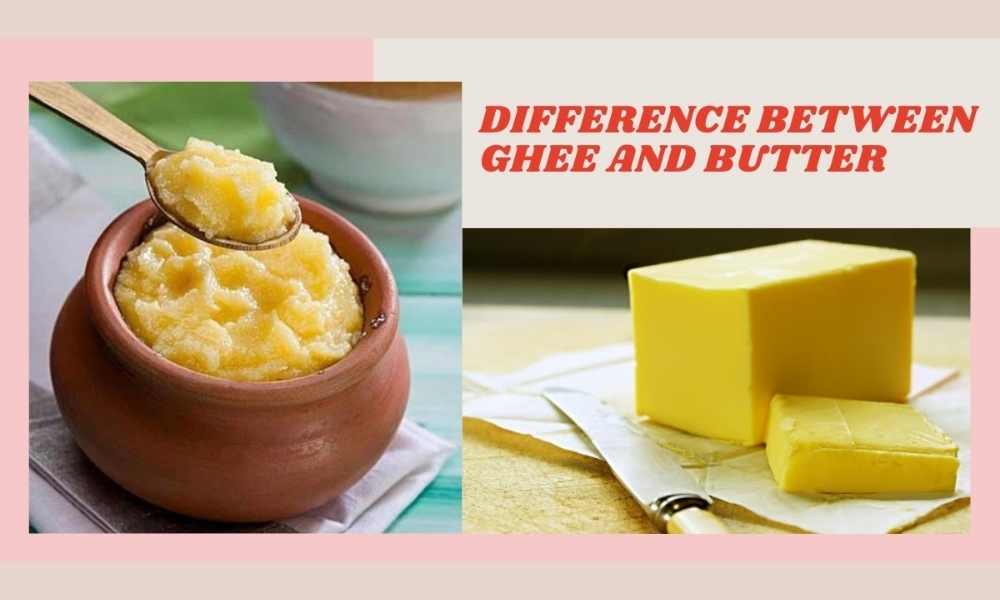

Ghee: As it does not contain milk solids and it is very stable at high heat, it is considered one of the best oils for baking, sautéing and deep fat frying.
Butter: When food is sautéed with butter, the milk solids precipitate to the bottom of the pan and they can burn to cause an unpleasant odour, appearance and taste.
Ghee: It has a rich, sweet and deliciously nutty flavour. A little amount of ghee adds a lot of flavours to the food. One tablespoon of ghee can replace up to three tablespoons of oil or butter in your recipe.
Ghee: It has a slightly alkalizing effect on the body
Butter: It has a slightly acidifying effect
Ghee: It is said that ghee which has been properly washed accordingly to Ayurvedic specifications is very beneficial in healing the skin. Ghee is sattvic food whereas butter is tamasic.
All this suggests that if you’re healthy and looking to add more fat to your diet, ghee may be a fine option. But there’s no strong evidence to suggest that ghee is a “superfood” that should replace other cooking fats in your diet.
WhatsApp us